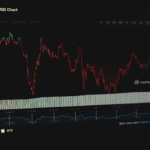Crypto futures contracts offer a powerful tool for experienced cryptocurrency traders seeking to expand their speculative and hedging capabilities in this dynamic market. This guide delves into the fundamentals of crypto futures, exploring essential concepts, trading strategies, risk management techniques, and popular trading platforms.

Understanding Crypto Futures Contracts: A Speculative Arena
Crypto futures contracts are agreements between two parties to buy or sell a specific cryptocurrency at a predetermined price on a future date. Unlike spot trading, where you own the underlying asset, futures allow for speculation on price movements without direct ownership. This opens doors to strategies beyond simply buying and holding cryptocurrencies.
Trading Strategies for Profitable Futures Exploration
Crypto futures empower traders with a diverse arsenal for navigating volatile markets:
- Directional Trading:Taking a long position (buying a futures contract) if you believe the price will rise or a short position (selling a futures contract) if you anticipate a price decline.
- Hedging:Utilizing futures to mitigate potential losses on existing cryptocurrency holdings. For example, an investor holding Bitcoin could sell a futures contract to lock in a future selling price and protect against a potential price drop.
- Arbitrage:Exploiting price discrepancies between different futures contracts or between spot and futures markets, capitalizing on temporary inefficiencies.
Managing Risk: Essential Considerations for Futures Success
Futures trading inherently carries significant risks and requires a robust risk management approach:
- Understanding Leverage:Futures contracts often involve leverage, allowing traders to control a larger contract value with a smaller initial investment. While this can amplify profits, it also magnifies potential losses. Careful management of leverage is crucial.
- Margin Requirements:Exchanges require traders to maintain a minimum margin deposit in their accounts to hold future positions. Failing to meet margin requirements can lead to forced liquidation of positions at potentially unfavorable prices.
- Volatility Management:The inherent volatility of cryptocurrencies can lead to rapid price swings, potentially resulting in substantial losses. Implementing stop-loss orders and other risk mitigation strategies is essential.
Choosing the Right Platform: Executing Your Futures Trades
Several reputable cryptocurrency exchanges offer futures trading platforms. Key factors to consider when selecting a platform include:
- Regulation and Security:Ensuring the platform is well-regulated and employs robust security measures to protect user funds.
- Trading Fees:Comparing commission structures and fees associated with futures trading on different platforms.
- Liquidity:Opting for platforms with high liquidity to ensure smooth entry and exit from futures positions.
As a leading digital asset consulting firm, Kenson Investments can equip you with the knowledge and guidance to navigate the world of crypto futures trading. We can help you craft a comprehensive futures trading strategy, select a suitable platform, implement risk management techniques, and stay abreast of market trends—all tailored to your risk tolerance and investment goals.
Schedule a consultation with our digital asset management consultants to discuss your crypto futures trading aspirations and explore how our expertise can empower you to navigate this dynamic market confidently.
Disclaimer: The content provided on this blog is for informational purposes only and should not be construed as financial advice. The information presented herein is based on personal opinions and experiences, and it may not be suitable for your individual financial situation. We strongly recommend consulting with a qualified financial advisor or professional before making any financial decisions. Any actions you take based on the information from this blog are at your own risk.














